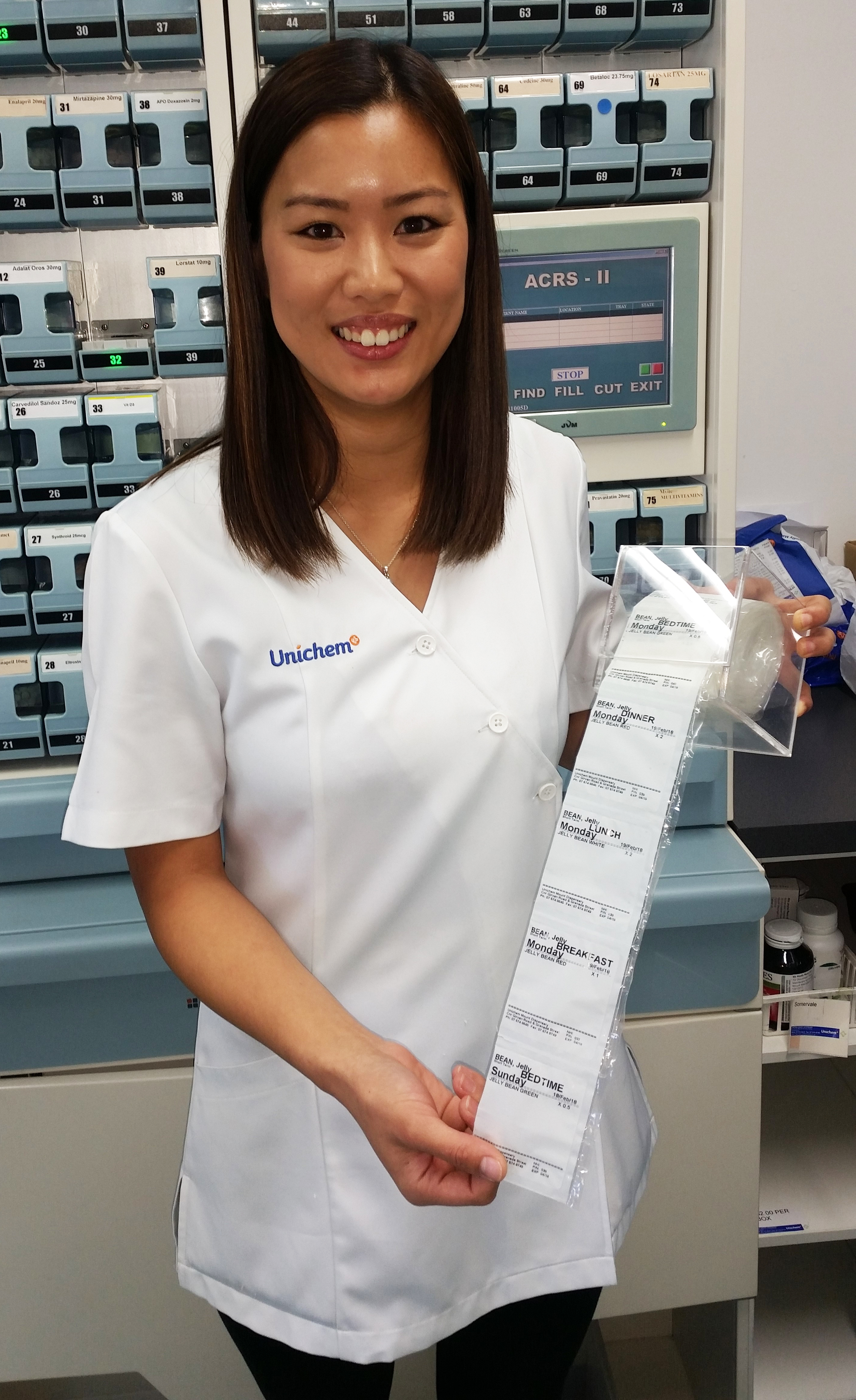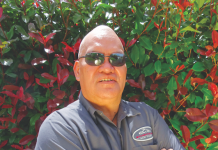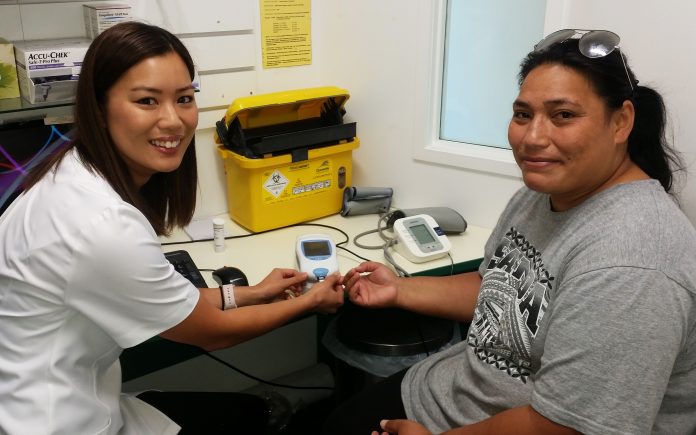Convenience, speed and accessibility mean people are increasingly looking to their local pharmacies for services they may have traditionally accessed through their GP.
Lupe Poe suffered rheumatic fever as a 12 year old and the disease damaged one of her heart valves. She has been on Warfarin ever since and needs weekly blood tests to monitor her condition. She now gets those blood tests at her community pharmacy.
“I used to go to Pathlab for my blood tests, the results would go to my doctor first and I would then be waiting almost a week to get them,” says Lupe. “It was a much longer process. Here the results are instant.”
Lupe is talking about her INR (International Normalised Ratio) testing; a measurement of how well the blood clots and a standard test for Warfarin patients.

Pharmacist Rowena Fu, of Unichem Mount Dispensary, says her pharmacy was one of the first in the area to offer the Community Pharmacy Anticoagulation Monitoring Service (CPAMS).
“Our Warfarin patients come in, we do a blood test and they get those results straight away,” explains Rowena. “Those results also go straight to their doctor. The INR machine only uses a pin-prick as it just needs a drop of blood. It’s much better for patients who might not like needles, or have other issues around giving blood.
“We manage the medication and advise people on what dose to take. For complex patients on a number of medicines we put those medicines in a pre-sealed clear plastic roll in the order they need to take them. For the patients it’s very convenient and it’s a free service we provide.”
Bay of Plenty District Health Board (BOPDHB) Primary Care Portfolio Manager Andrea Baker says the service is very client centric.
“It meets the BOPDHB aims of increasing capacity in health, having ease of access for the local community and taking care of the local community,” she says.
Patients also get a chart with a picture of the pills they must take, what they’re for, and how often they should take them. It’s especially helpful for people on multiple medicines. They get a new chart whenever there are any medicine changes.
Even with all this assistance though compliance can still be an issue. Lupe wasn’t always as good as she is now with taking her medicines.
“We went to Lupe’s home to explain why it was important to take the medication as prescribed,” says Rowena. “Once people understand more about their medicines and their family understand why taking the medication is important we see much better results.”
The visit had other results says Lupe.
“My 9 year-old daughter Fati now comes up to me all the time and asks me if I’ve taken my pills.”










































































